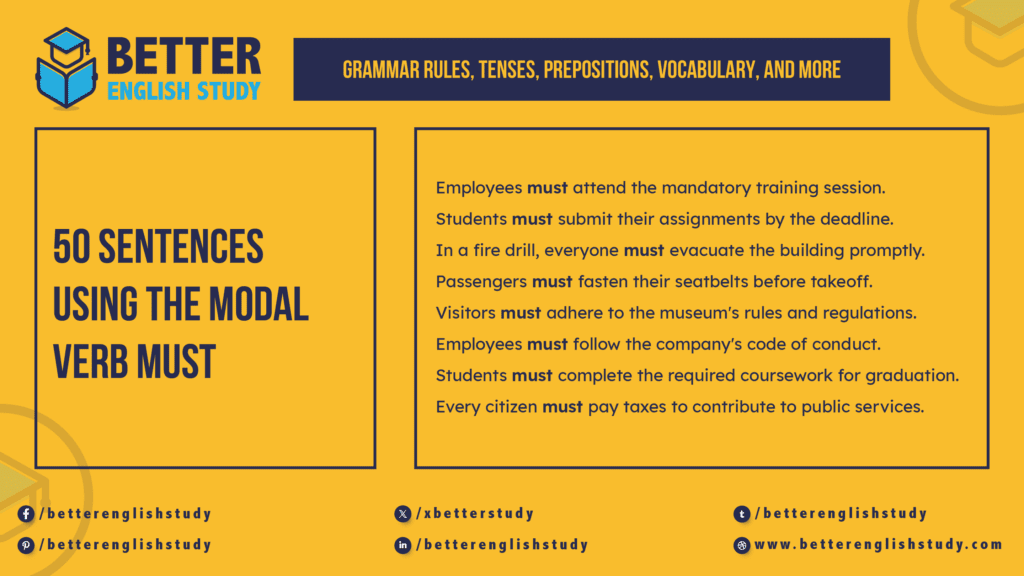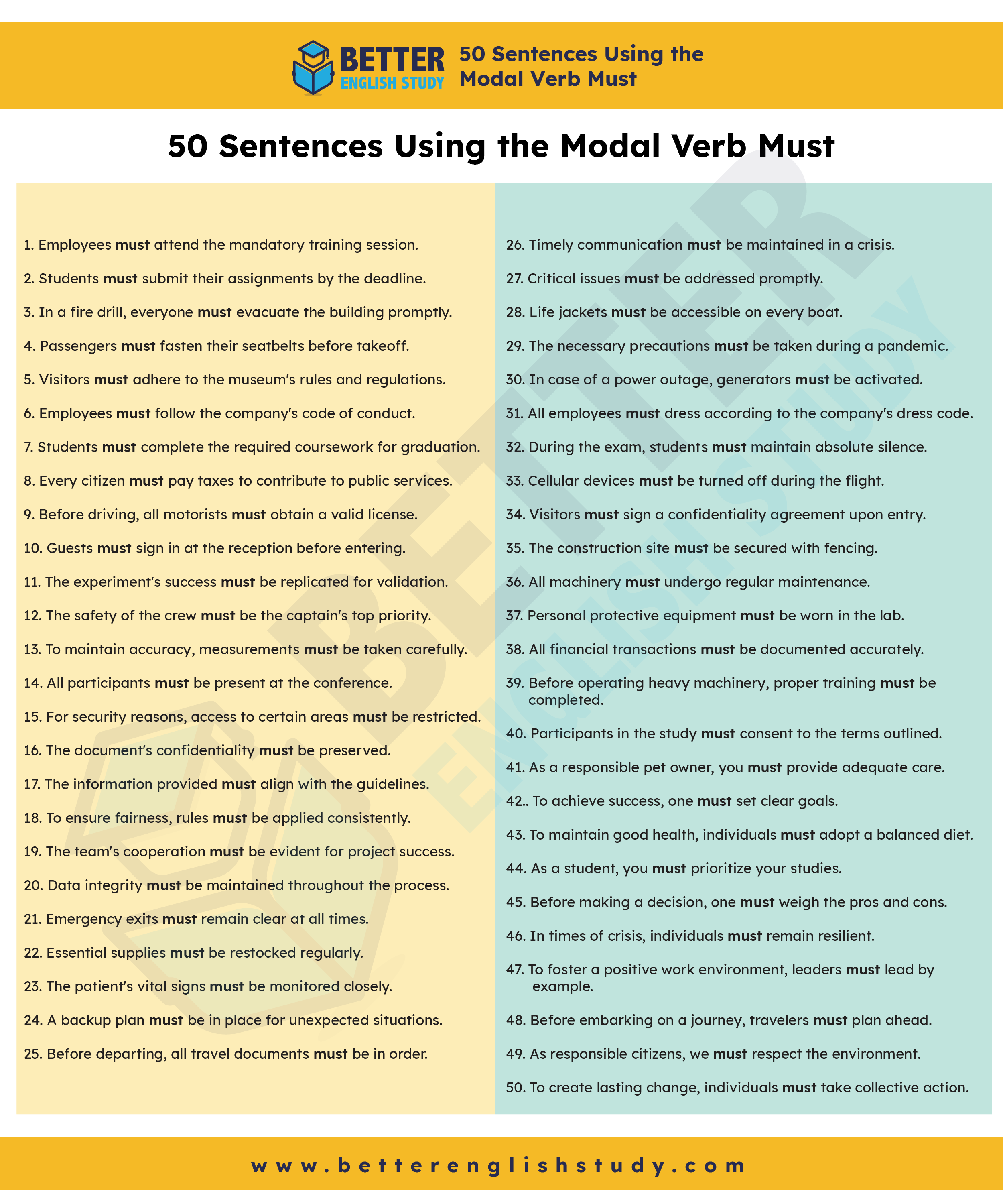
The modal verb “must” is a powerful element in the English language, conveying a sense of obligation and firm necessity. Understanding how to use “must” appropriately is essential for expressing duties and emphasizing the importance of certain actions.
In this article, we will explore 50 examples showcasing the various contexts in which the modal verb “must” can be applied, emphasizing obligation and firm necessity.
When to Use Must
Before delving into the sentences, it’s crucial to understand when to employ “must.” This modal verb is often used to express a strong necessity, obligation, or recommendation. Recognizing these contexts helps you communicate with clarity and authority.
For better knowledge, let’s read the examples.
1. General Obligations
- Employees must attend the mandatory training session.
- Students must submit their assignments by the deadline.
- In a fire drill, everyone must evacuate the building promptly.
- Passengers must fasten their seatbelts before takeoff.
- Visitors must adhere to the museum’s rules and regulations.
- Employees must follow the company’s code of conduct.
- Students must complete the required coursework for graduation.
- Every citizen must pay taxes to contribute to public services.
- Before driving, all motorists must obtain a valid license.
- Guests must sign in at the reception before entering.
2. Expressing Certainty
- The experiment’s success must be replicated for validation.
- The safety of the crew must be the captain’s top priority.
- To maintain accuracy, measurements must be taken carefully.
- All participants must be present at the conference.
- For security reasons, access to certain areas must be restricted.
- The document’s confidentiality must be preserved.
- The information provided must align with the guidelines.
- To ensure fairness, rules must be applied consistently.
- The team’s cooperation must be evident for project success.
- Data integrity must be maintained throughout the process.
3. Urgency and Necessity
- Emergency exits must remain clear at all times.
- Essential supplies must be restocked regularly.
- The patient’s vital signs must be monitored closely.
- A backup plan must be in place for unexpected situations.
- Before departing, all travel documents must be in order.
- Timely communication must be maintained in a crisis.
- Critical issues must be addressed promptly.
- Life jackets must be accessible on every boat.
- The necessary precautions must be taken during a pandemic.
- In case of a power outage, generators must be activated.

4. Strict Guidelines
- All employees must dress according to the company’s dress code.
- During the exam, students must maintain absolute silence.
- Cellular devices must be turned off during the flight.
- Visitors must sign a confidentiality agreement upon entry.
- The construction site must be secured with fencing.
- All machinery must undergo regular maintenance.
- Personal protective equipment must be worn in the lab.
- All financial transactions must be documented accurately.
- Before operating heavy machinery, proper training must be completed.
- Participants in the study must consent to the terms outlined.
5. Expressing Personal Convictions
- As a responsible pet owner, you must provide adequate care.
- To achieve success, one must set clear goals.
- To maintain good health, individuals must adopt a balanced diet.
- As a student, you must prioritize your studies.
- Before making a decision, one must weigh the pros and cons.
- In times of crisis, individuals must remain resilient.
- To foster a positive work environment, leaders must lead by example.
- Before embarking on a journey, travelers must plan ahead.
- As responsible citizens, we must respect the environment.
- To create lasting change, individuals must take collective action.
These 50 examples illustrate the various ways the modal verb “must” can be applied to express obligation, certainty, urgency, and firm necessity. Whether outlining general obligations, emphasizing the importance of certain actions, or setting strict guidelines, “must” serves as a linguistic tool to convey the imperative nature of certain duties.
